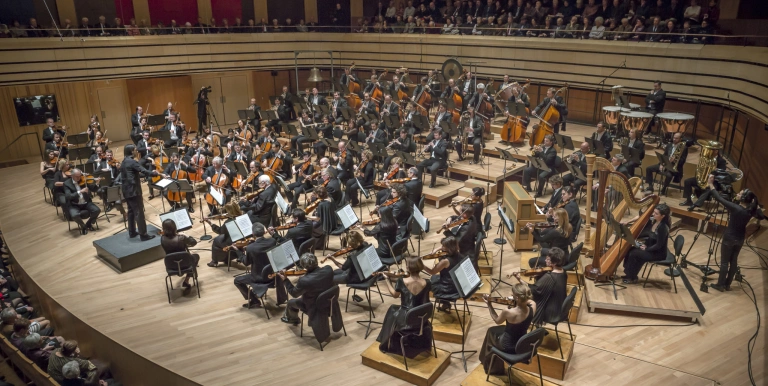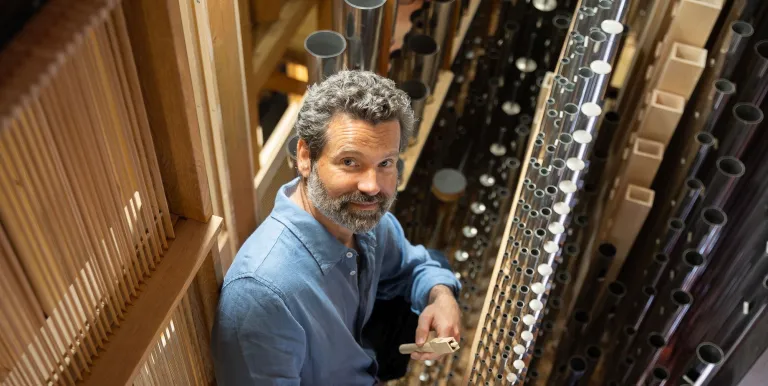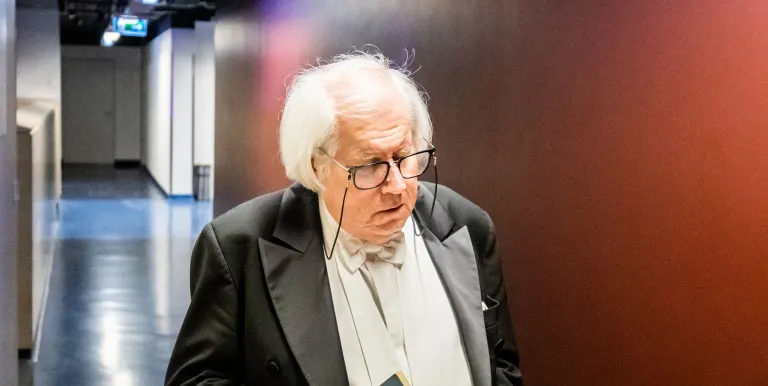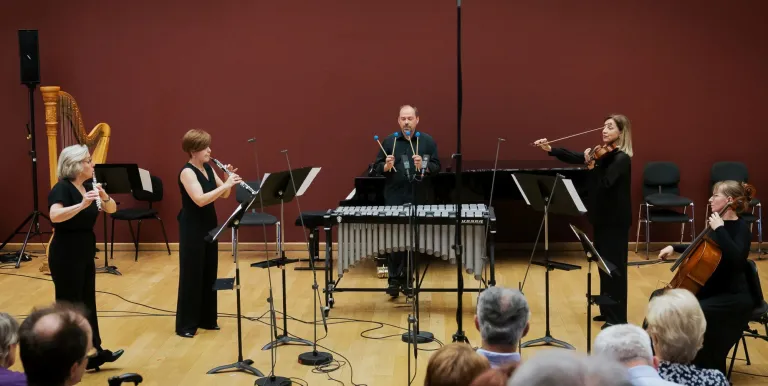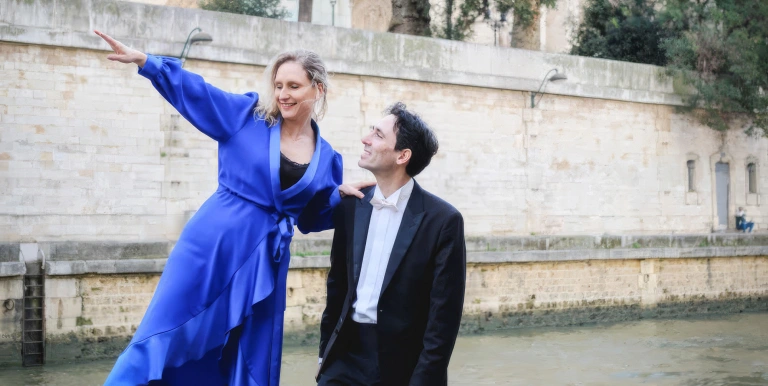Featuring:
Creator:
Conductor:
Weill–Hauptmann–Brecht
The Yes Sayer
Kurt Weill wrote the music for this schuloper by Elisabeth Hauptmann and Bertolt Brecht, which they then published (under the original title Der Jasager) and premiered later the same year in Berlin's Central Institute of Education and Teaching. The work takes as its basis a 15th century Japanese Noh drama that explores the question of whether an individual must consent to be sacrificed for the sake of the community. The “school opera” relates a simple tale in ten musical blocks: a boy must cross a mountain to obtain medicine and assistance for his sick mother from the “great doctors” on the other side. On the way, he too falls ill. He is not able to continue and his companions cannot carry him. With his consent and in keeping with the “great custom” of old, they do away with him, pushing him from the mountaintop to the depths below and death.
The boy's “consent” has been interpreted in quite varied ways: as religious conviction, as a sacrifice for the community, as a sign of blind obedience to illogical norms, as respect for samurai traditions, or as a provocation of the audience that invites conflict and dispute. (Brecht later wrote The No Sayer, a companion piece to his school drama, for which music has since been written.)
Weill and Brecht's school opera reflects the spirit of pedagogical reform: the aim was, through performing music as an ensemble and performing on a stage, to combine a communal experience with musical education, and also at the same time to disseminate some thinking about a new kind of musical theatre. The piece, which originally was also written for this purpose, was performed frequently in schools. At the amateur performances, the dividing line between audience and performers disappeared, and viewers were drawn into the production. With the help of radio, the new medium of the era, the audience was even able to reach those layers of cultural bounty that it had never really partaken in before – the work's premiere was broadcast live on the radio.
Presented by: Budapest Festival Orchestra, Palace of Arts
-
We wish to inform you that in the event that Müpa Budapest's underground garage and outdoor car park are operating at full capacity, it is advisable to plan for increased waiting times when you arrive. In order to avoid this, we recommend that you depart for our events in time, so that you you can find the ideal parking spot quickly and smoothly and arrive for our performance in comfort. The Müpa Budapest underground garage gates will be operated by an automatic number plate recognition system. Parking is free of charge for visitors with tickets to any of our paid performances on that given day. The detailed parking policy of Müpa Budapest is available here.

